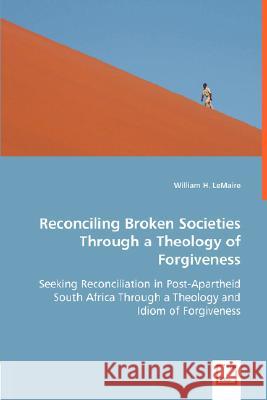Reconciling Broken Societies Through a Theology of Forgiveness » książka
Reconciling Broken Societies Through a Theology of Forgiveness
ISBN-13: 9783836494083 / Angielski / Miękka / 2008 / 76 str.
Forgiveness, typically viewed in terms of personal relations or the church confessional, is largely or wholly absent from todays public and foreign policy discourse. However, for South Africas Truth and Reconciliation Commission (TRC), forgiveness, framed in Christian theology and expressed in religious idiom, became the metanarrative that characterized the TRCs formula for national reconciliation. The efficacy of evoking personal forgiveness and interpersonal reconciliation in conflict resolution arenas is explored in this monograph. It especially examines the question of whether forgiveness is a sufficiently robust motive force to break or interrupt intractable cycles of violence. Accordingly, its examination yields new insight into whether or not this unique fusion of secular agency and religious values holds promise for future efforts in post-conflict reconciliation.
Forgiveness, typically viewed in terms of personal relations or the church confessional, is largely or wholly absent from todays public and foreign policy discourse. However, for South Africas Truth and Reconciliation Commission (TRC), forgiveness, framed in Christian theology and expressed in religious idiom, became the metanarrative that characterized the TRCs formula for national reconciliation. The efficacy of evoking personal forgiveness and interpersonal reconciliation in conflict resolution arenas is explored in this monograph. It especially examines the question of whether forgiveness is a sufficiently robust motive force to break or interrupt intractable cycles of violence. Accordingly, its examination yields new insight into whether or not this unique fusion of secular agency and religious values holds promise for future efforts in post-conflict reconciliation.











